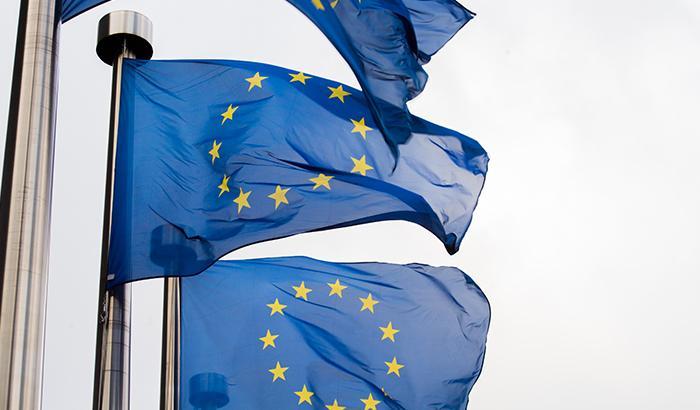
On October 14, 2024, a major decision of the European Parliament has attracted much attention from the global financial community. The European Parliament has voted to grant Ukraine a €35 billion special macro-financial Assistance (MFA) loan and agreed to use the proceeds of frozen Russian assets abroad to pay it back. There are complex political, economic and financial considerations behind such a move.
At the political level, Europe's support for Ukraine reflects its position on the international political stage. Ukraine's geopolitical conflict with Russia has lasted for a long time, and Europe has been on Ukraine's side, providing various forms of assistance. The approval of this huge loan is undoubtedly a strong support for Ukraine, indicating that Europe will not back down in this conflict and will continue to provide economic support for Ukraine. Such political rhetoric is not only a boost for Ukraine, but also a clear signal to Russia that Europe will stand firm in upholding what it considers to be the international order and values.
The decision was not without controversy. The use of proceeds from frozen Russian assets abroad to repay the loans raises questions about international law and property rights. Russia is bound to strongly oppose such a move, seeing it as an illegal seizure of its assets. The international community is divided over such an approach, with some countries potentially concerned that it could set a bad precedent and destabilize the global financial order. From a legal point of view, how to ensure the legality and sustainability of this repayment method will be an urgent issue.
35 billion euros is not a small amount, and it will put some pressure on Europe's fiscal position. European countries still face many challenges on the road to economic recovery, such as high inflation, low growth and debt problems. At this time, a huge amount of money to aid Ukraine may affect the domestic investment in infrastructure construction and social welfare of European countries. Second, Ukraine's economic outlook is uncertain. While the loans are intended to help Ukraine stabilize its economy and rebuild its infrastructure, Ukraine's ability to repay the loans on time is in deep doubt as its economy has been battered by the war. If Ukraine fails to repay on time, Europe will face losses, which could further affect financial stability in Europe.
In the financial markets, the European Parliament's decision has caused market volatility. Investors are concerned about Europe's finances and Ukraine's ability to pay its debts and may adjust their investment strategies. The exchange rate of the euro could be affected, on the one hand, the huge loan could trigger concerns about the European economic outlook, causing the euro to fall; On the other hand, the euro could also get some support if the market perceives European decisions as a sign of resolve and strength. In addition, uncertainty in the financial markets may also lead to changes in capital flows, and investors may choose their investments more carefully and seek safer assets.
Faced with this complex situation, Europe needs to carefully weigh the pros and cons. At the same time, the loan should strengthen the supervision and guidance of Ukraine's economic reform to ensure that the loan funds are used rationally and effectively. At the same time, Europe should actively seek international cooperation to jointly resolve the Ukrainian issue in order to reduce the potential risks to Europe's economic and financial stability. The international community should also pay close attention to the development of this incident and make joint efforts to maintain the stability of the global financial order.
In short, the European Parliament's decision to approve a €35bn loan to Ukraine to be repaid using proceeds from frozen Russian assets abroad is a challenging and risky move. The consequences of this decision will play out over the coming period, and both European and global financial markets will be watching closely. Only through careful decision-making and effective cooperation can political objectives be achieved while minimizing adverse effects on economic and financial stability.

Driven by the Trump administration's push to relax financial regulations and the recovery of investment banking business, the market value of the six major banks in the United States has cumulatively increased by approximately 600 billion US dollars by 2025.
Driven by the Trump administration's push to relax financia…
On Christmas evening, U.S. President Trump posted on social…
According to multiple foreign media reports, the recent fin…
The middle class, once regarded as the cornerstone of Ameri…
On December 19th local time, the US military launched a lar…
The Boxing Day sunshine should have cast a false glow of pr…